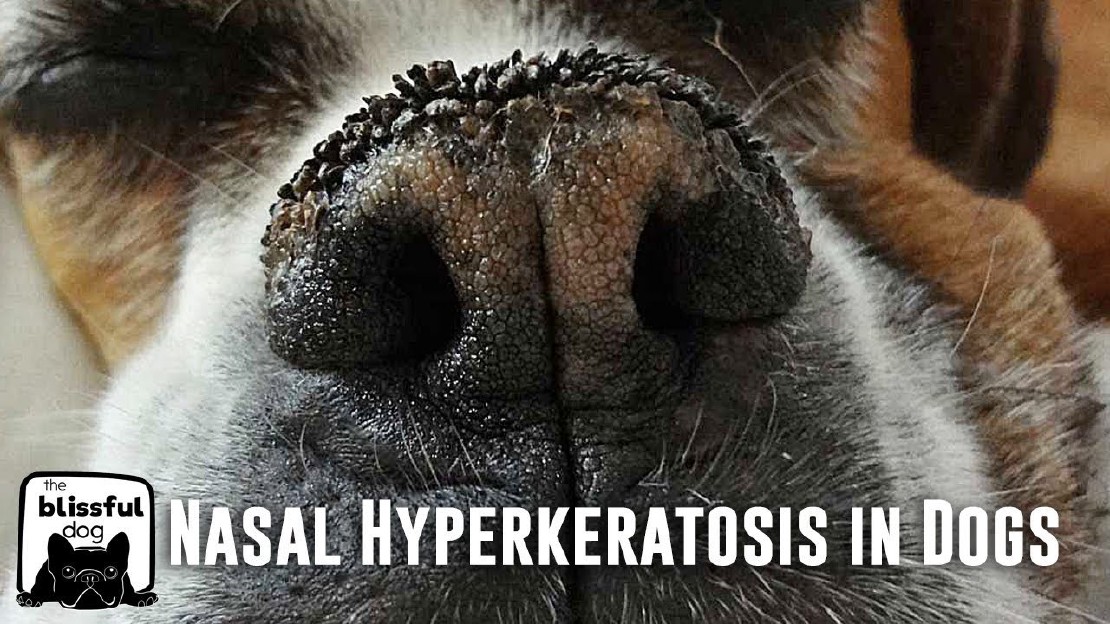5 Reasons Your Dog May be Peeing Inside and How to Stop It
Why has my dog started peeing inside? Is your dog having accidents in the house? Don’t worry, you’re not alone. Many dog owners have …
Read Article
A dry, crusty nose on a dog can be a common problem that many pet owners face. There are several factors that can contribute to this condition, including environmental factors, medical conditions, and poor nutrition.
One possible cause of a dry, crusty nose is environmental factors. Dry air, particularly during the winter months, can cause a dog’s nose to become dry and cracked. Additionally, exposure to the sun or wind can also contribute to this problem. It is important to provide your dog with a comfortable and well-humidified environment to help prevent and alleviate dry nose issues.
Medical conditions can also be responsible for a dry, crusty nose in dogs. Certain allergies or autoimmune disorders can cause inflammation and dryness of the nose. Infections, such as a fungal or bacterial infection, can also lead to a dry and crusty nose. If you suspect that your dog’s dry nose is due to a medical condition, it is important to consult with a veterinarian for a proper diagnosis and treatment plan.
In some cases, a poor diet can be the culprit behind a dog’s dry and crusty nose. A diet lacking in essential fatty acids, vitamins, and minerals can lead to dry skin and nasal issues. Ensuring that your dog is receiving a balanced and nutritious diet is crucial for maintaining their overall health, including the health of their nose.
There are several remedies that can help alleviate a dog’s dry, crusty nose. Applying a moisturizing balm or ointment specifically designed for dogs can help hydrate and soothe the nose. Additionally, ensuring that your dog is well-hydrated by providing plenty of fresh water can also help prevent dry nose issues. If allergies are suspected, your veterinarian may recommend antihistamines or other medications to help manage the condition.
In conclusion, a dry, crusty nose on a dog can be caused by various factors, including environmental conditions, medical conditions, and poor nutrition. It is important to identify the underlying cause and to provide the necessary remedies to help alleviate the issue. Regular veterinary check-ups and a balanced diet can go a long way in ensuring your dog’s nose stays healthy and moisturized.
A dry and crusty nose in dogs can be caused by various factors, including:
If your dog has a dry and crusty nose, it is important to identify the underlying cause in order to provide appropriate treatment and relief. Consulting with a veterinarian is recommended to determine the specific cause and develop a treatment plan.
If you notice that your dog has a dry, crusty nose, there are several remedies that you can try to help alleviate the problem. Here are a few options:
It’s important to note that while these remedies can help alleviate a dry, crusty nose, it’s essential to consult with your veterinarian if the problem persists or worsens. Your vet will be able to diagnose the underlying cause of the issue and provide appropriate treatment.
The common causes of dry, crusty nose in dogs can include environmental factors such as low humidity or excessive exposure to sun or heat, allergies, infections, autoimmune diseases, and certain medications.
If you suspect that your dog’s dry, crusty nose is due to allergies, you can look for other symptoms such as itching, redness, sneezing, watery eyes, or skin rashes. It is recommended to consult with a veterinarian to confirm the diagnosis and determine the appropriate treatment.
Some remedies for dry, crusty nose in dogs include providing proper hydration by ensuring they have access to fresh water at all times, using a humidifier to increase the humidity in the environment, avoiding excessive exposure to sun or heat, applying a dog-safe moisturizer or nose balm, and addressing any underlying health issues with the help of a veterinarian.
Yes, certain medications such as antihistamines, diuretics, and certain antibiotics may cause dryness and crustiness in a dog’s nose as a side effect. If you suspect that a medication is causing the issue, it is important to consult with a veterinarian to discuss alternative options or adjustments to the dosage.
Why has my dog started peeing inside? Is your dog having accidents in the house? Don’t worry, you’re not alone. Many dog owners have …
Read ArticleWhy don t other dogs like my dog? Every dog has a unique personality, just like humans. Some dogs are energetic and playful, while others are more …
Read ArticleWhy dogs eat their newborn puppies? It is a shocking and distressing sight to witness a mother dog eating her own newborn puppies. This behavior, …
Read ArticleWill green beans help my dog lose weight? Many dog owners struggle with helping their furry friends maintain a healthy weight. Obesity in dogs can …
Read ArticleWhat should i get my dog for christmas? The holiday season is fast approaching, and it’s time to start thinking about what gifts to get for your …
Read ArticleWill getting my male dog fixed calm him down? Hyperactivity in male dogs can be a common issue for many pet owners. It can manifest in various forms, …
Read Article